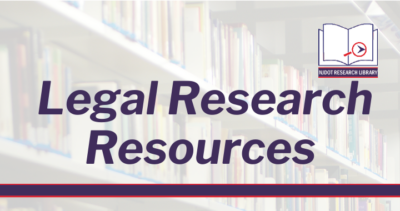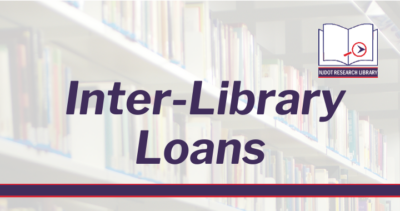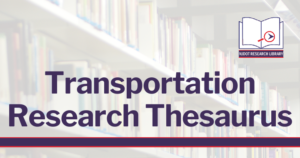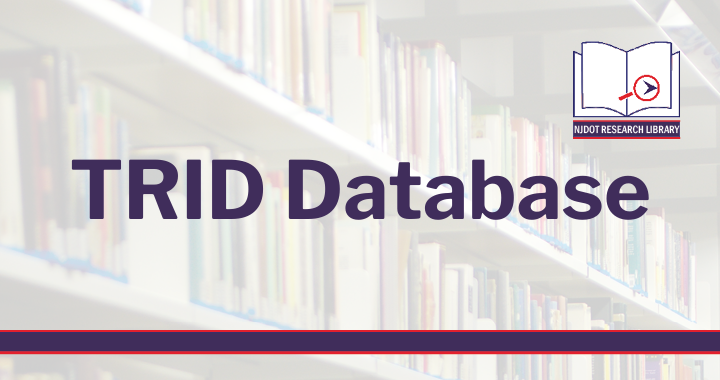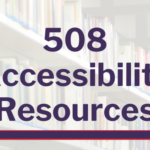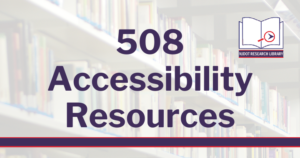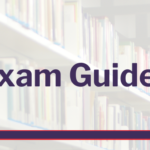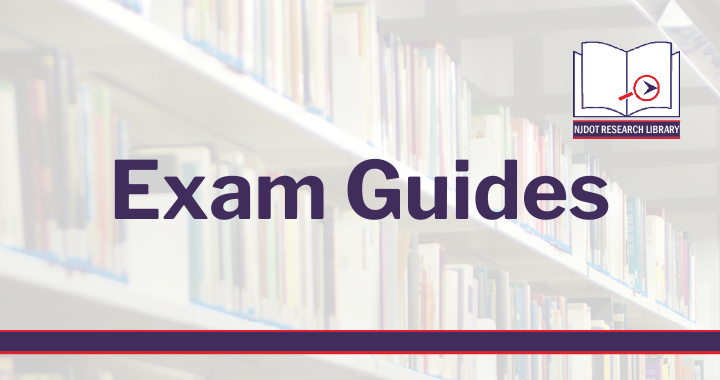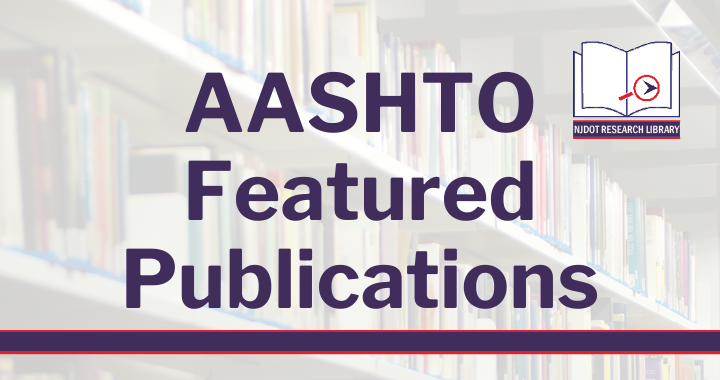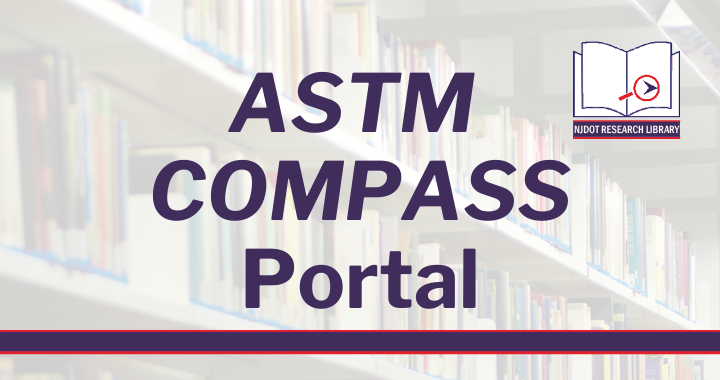The NJDOT Technology Transfer Research Library offers valuable resources, including the TRID database, which helps researchers access transportation publications by topic, keyword, or geographical area. TRID can serve as a valuable tool to expand knowledge on innovations in topics such as lighting, or to learn more about local research.
The NJDOT Technology Transfer Research Library page features a “Did You Know” page that provides key information about the library, transportation research resources, as well as newly released publications available through AASHTO and the ASTM COMPASS Portal. Additionally, the site hosts a TRID Searches page, offering a list of recent publications indexed in the Transport Research International Documentation (TRID) database, categorized into 37 subject areas. The TRID database features specialized search options allowing researchers and other interested parties to locate publications using geographical, subject area, and key term identifiers.
NJDOT frequently advances innovative transportation projects across various research topics, including lighting initiatives under the FHWA’s Every Day Counts (EDC-7) program. In one example, NJDOT collaborated with Rutgers-VTC, and Rowan University to produce a pedestrian lighting draft report, as part of the Nighttime Visibility for Safety initiative. The research team determined optimal lighting levels and designed pedestrian lighting infrastructure to improve safety. The researchers presented project findings at the 2024 NJDOT Research Showcase, with a full report expected in 2025. Additionally, NJDOT advanced innovations in nighttime traffic incident management through the procurement of lighting towers and LED flares for emergency response vehicles, as part of the EDC-7 Next-Generation Traffic Incident Management (NextGen TIM): Technology for Saving Lives initiative.
As NJDOT advances its lighting innovations, the TRID database can serve as a valuable resource to explore similar lighting-related research and initiatives both nationally and within New Jersey. A search of the TRID database using the keyword “lighting” uncovers hundreds of recent transportation studies that focus on or incorporate lighting. One such study explored ways to enhance the safety of winter road maintenance vehicles, such as snowplows, by identifying the most effective vehicle lighting to improve reaction times. Another examined racial and poverty-level disparities in pedestrian nighttime crashes, highlighting the increased crash risk in low-income and minority communities due to inadequate lighting and pedestrian infrastructure.
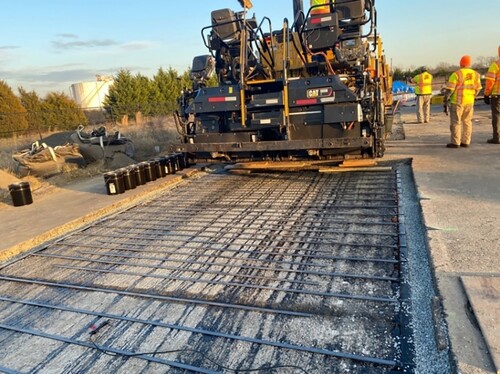
In addition to researching specific topics, the TRID database can be used to locate publications by geographical area. Using “New Jersey ” as a keyword uncovers studies that focus on local transportation research and innovations. For instance, one study evaluated the performance of conductive asphalt pavements in the state, finding that a high-performance thin overlay (HPTO) asphalt mixture with graphite and carbon fibers offered the best cracking resistance. Another study, sponsored by NJ TRANSIT, examined factors contributing to the decline in bus ridership, identifying major contributors like infrequent service and a lack of direct connections to key destinations.
TRID Database
Lighting-Based Research
Lighting-based research can be found on the TRB TRID database. Below are several recent national transportation research articles on lighting:
Belloni, E., C. Buratti, L. Lunghi and L. Martirano. (2024). A new street lighting control algorithm based on forecasted traffic data for electricity consumption reduction. Lighting Research and Technology. Vol. 56. https://trid.trb.org/View/2248974
Dubey, S., A. Bailey, and J. Lee. (2025). Women’s perceived safety in public places and public transport: A narrative review of contributing factors and measurement methods. Cities. Vol. 156. https://trid.trb.org/View/2447605
Kidd, D., L. Riexinger, and D. Perez-Repela. (2024). Pedestrian automatic emergency breaking responses to a stationary or crossing adult mannequin during the day and night. Traffic Injury Prevention. Vol. 25. https://trid.trb.org/View/2452794
Li. H., L. Wang, and M. Yang. (2025). Collaborative effects of vehicle speed and illumination gradient at highway intersections exits on drivers’ stress capacity. Accident Analysis & Prevention. Vol. 209. https://trid.trb.org/View/2447380
Mwende, S., V. Kwigizile, and J. Oh. (2024). Investigating Racial and Poverty-Level Disparities Associated with Pedestrian Nighttime Crashes. Transportation Research Record: Journal of the Transportation Research Board. Vol. 2678. https://trid.trb.org/View/2361845
Ouyang, H., P. Liu and Y. Han. (2025). Exploring Factors Contributing to Pedestrian Injury Severity in Pedestrian-Vehicle Crashes: An Integrated XGBoost-SHAP, Latent Cluster, and Mixed Logit Approach. Journal of Transportation Engineering, Part A: Systems. Vol. 151. https://trid.trb.org/View/2479744
Rangaswamy, R., N. Alnawmasi, and Z. Wang. (2024). Exploring contributing factors to improper driving actions in single-vehicle work zone crashes.: A mixed logit analysis considering heterogeneity in means and variances, and temporal stability. Journal of Transportation Safety & Security. Vol. 16. https://trid.trb.org/View/2399835
Van Beek, A., Y. Fang and D. Duives. (2024). Studying the impact of lighting on the pedestrian route choice using Virtual Reality. Safety Science. Vol. 174. https://trid.trb.org/View/2345069
Vidal-Tortosa, E. and R. Lovelace. (2024). Road lighting and cycling: A review of the academic literature and policy guidelines. Journal of Cycling and Micromobility Research. Vol. 2. https://trid.trb.org/View/2334660
Wong, A. D. Sharma, F. Momeni, and S. Wong. (2025). Naturalistic Experiment for Surface Transportation: A Study of Snowplow Lighting Under Winter Conditions. Journal of Transportation Engineering, Part A: Systems. Vol. 151. https://trid.trb.org/View/2464993
New Jersey-Based Research
New Jersey-based research can also available through the TRB TRID database. Below are several recent articles on New Jersey transportation research:
Assaad, H., M. Mohammadi, and G. Assaf. (2024). Determining Critical Cascading Effects of Flooding Events on Transportation Infrastructure Using Data Mining Algorithms. Journal of Infrastructure Systems. Vol. 30. https://trid.trb.org/View/2373908
Devajyoti, D., and C. Wang. (2024). An investigation into the potential use of information and communication technologies by trip-deprived older adults in New Jersey. Transportation Research Part A: Policy and Practice. Vol. 188. https://trid.trb.org/View/2415346
Devajyoti, D., and Z. Liu. (2024). Who stopped riding buses and what would motivate them to return? A New Jersey case study. Case Studies on Transport Policy. Vol. 15. https://trid.trb.org/View/2343481
Hasan, A.S., M. Jalayer, S. Das and M. Bin Kabir. (2024). Application of machine learning models and SHAP to examine crashes involving young drivers in New Jersey. International Journal of Transportation Science and Technology, Vol. 14. https://trid.trb.org/View/2162338
Keenan, K. (2024). The transportation policy elite and their ladder of citizen participation: Problems and prospects around communication methods in New Jersey. Cities. Vol. 145. https://trid.trb.org/View/2309380
Khameneh, R., K. Barker, and J. Ramirez-Marquez. (2025). A hybrid machine learning and simulation framework for modeling and understanding disinformation-induced disruptions in public transit systems. Reliability Engineering & System Safety. Vol. 255. https://trid.trb.org/View/2465146
Marath. A., A. Saidi, A. Ali, and Y. Mehta. (2024). Assessment of mechanical performance of electrically conductive asphalt pavements using accelerated pavement testing. International Journal of Pavement Engineering. Vol. 25. https://trid.trb.org/View/2487585
Najafi, A., Z. Amir, B. Salman, P. Sanaei, E. Lojano-Quispe, A. Maher, and R. Schaefer. (2024). A Digital Twin Framework for Bridges. ASCE International Conference on Computing in Civil Engineering 2023, American Society of Civil Engineers, pp 433-441. https://trid.trb.org/view/2329319
Patel, D., R. Alfaris, and M. Jalayer. (2024). Assessing the effectiveness of autism spectrum disorder signs: A case study in New Jersey. Transportation Research Part F: Traffic Psychology and Behaviour. Vol. 100. https://trid.trb.org/View/2293015
Zaman, A., Z. Huang, W. Li, H. Qin, D. Kang, and X. Liu. (2024). Development of Railroad Trespassing Database Using Artificial Intelligence. Rutgers University, New Brunswick, Federal Railroad Administration, 80p. https://trid.trb.org/view/2341095

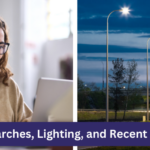
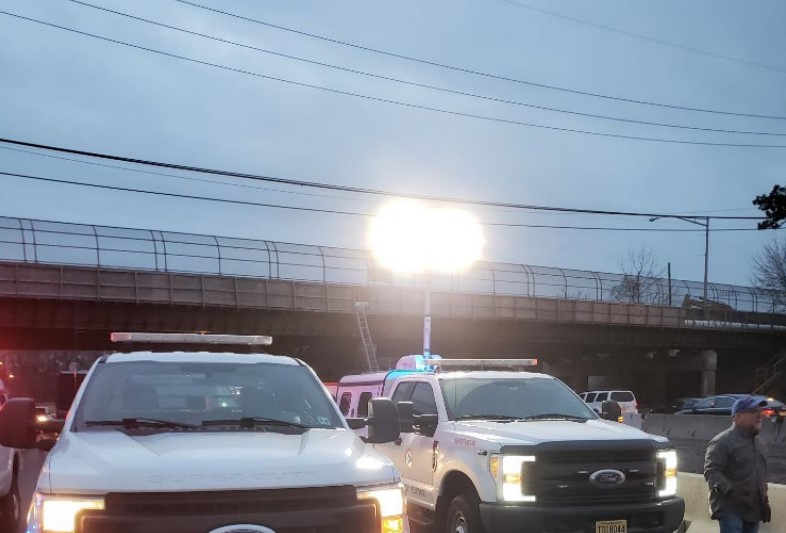
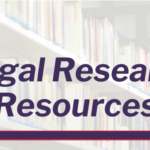
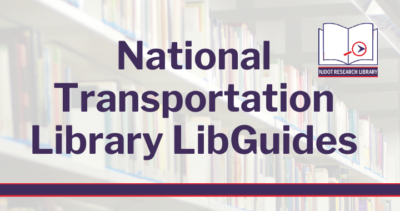 National Transportation LibGuides
National Transportation LibGuides